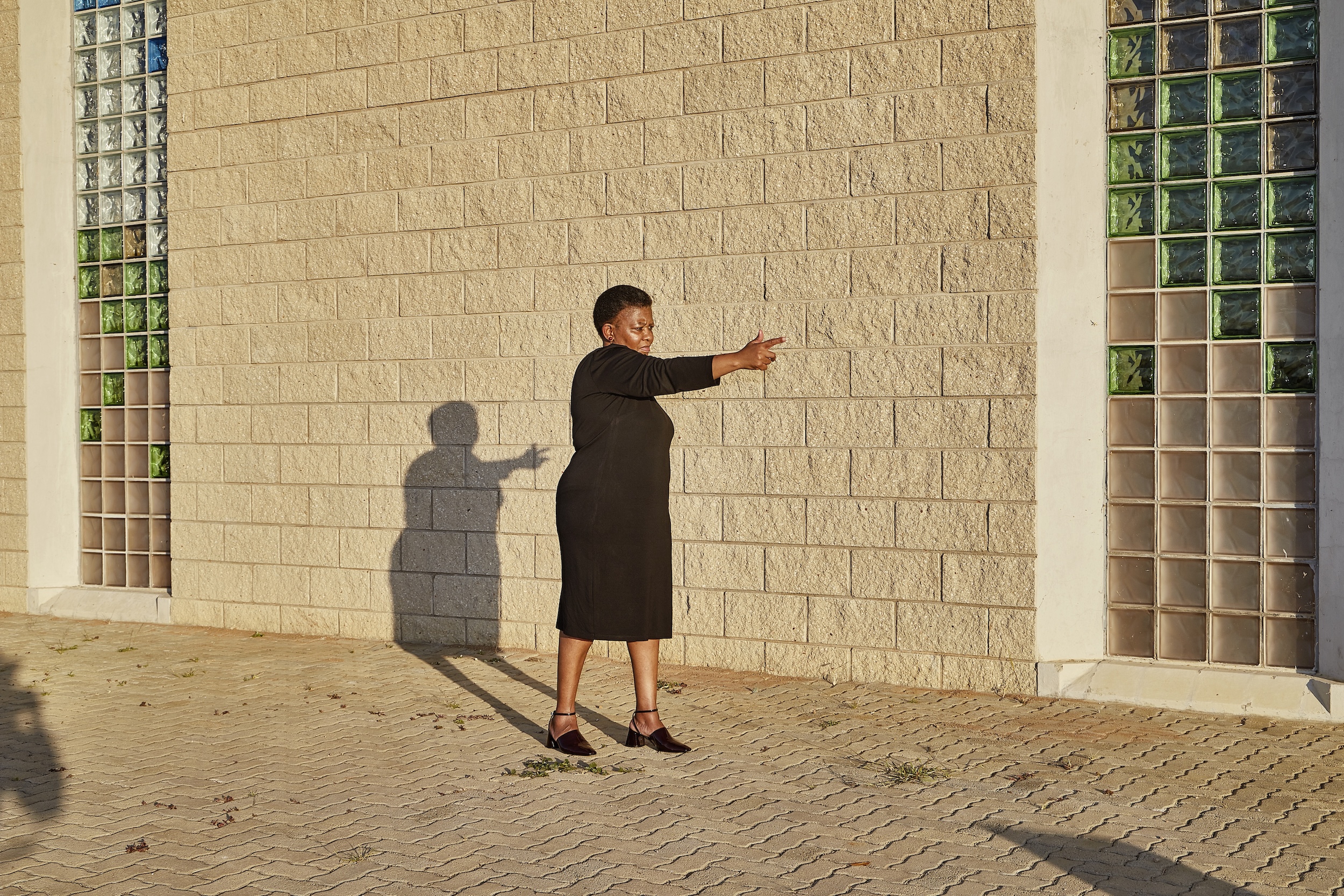Under Surveillance, from the series We Didn’t Choose to be Born Here (2020 – ongoing) © Thero Makepe
A rich family history of political activism and personal responsibility, diverging paths and roads untrod inform Thero Makepe’s We Didn’t Choose to be Born Here
In 1958 Thero Makepe’s grandfather, Hippolytus Mothopeng, left South Africa to escape racist Apartheid law. Fleeing to Botswana in what was a semi-exodus of the time, he started anew. Botswana was wealthier and more peaceful than South Africa, still governed by the British but gaining independence in 1966, and Mothopeng found work as a civil servant. Settling in Francistown, then the capital Gaborone, he was able to raise his family in a comfortable, middle class life.
By contrast Mothopeng’s uncle, Zephaniah Mothopeng, stayed in South Africa. A teacher who became an anti-apartheid activist, he initially worked with the Pan-African Congress, and later joined the more radical Pan-African Congress of Azania. Soon made president of the latter, he faced constant harassment from the South African authorities and served two jail sentences on Robben Island, including a stint starting in 1979 sentenced to last 15 years. “He left his teaching position and became a full-time revolutionary, devoting his life to the struggle,” says Makepe. “And that had consequences for his children. They grew up with a father who was consistently being arrested, tortured and imprisoned by the state.”
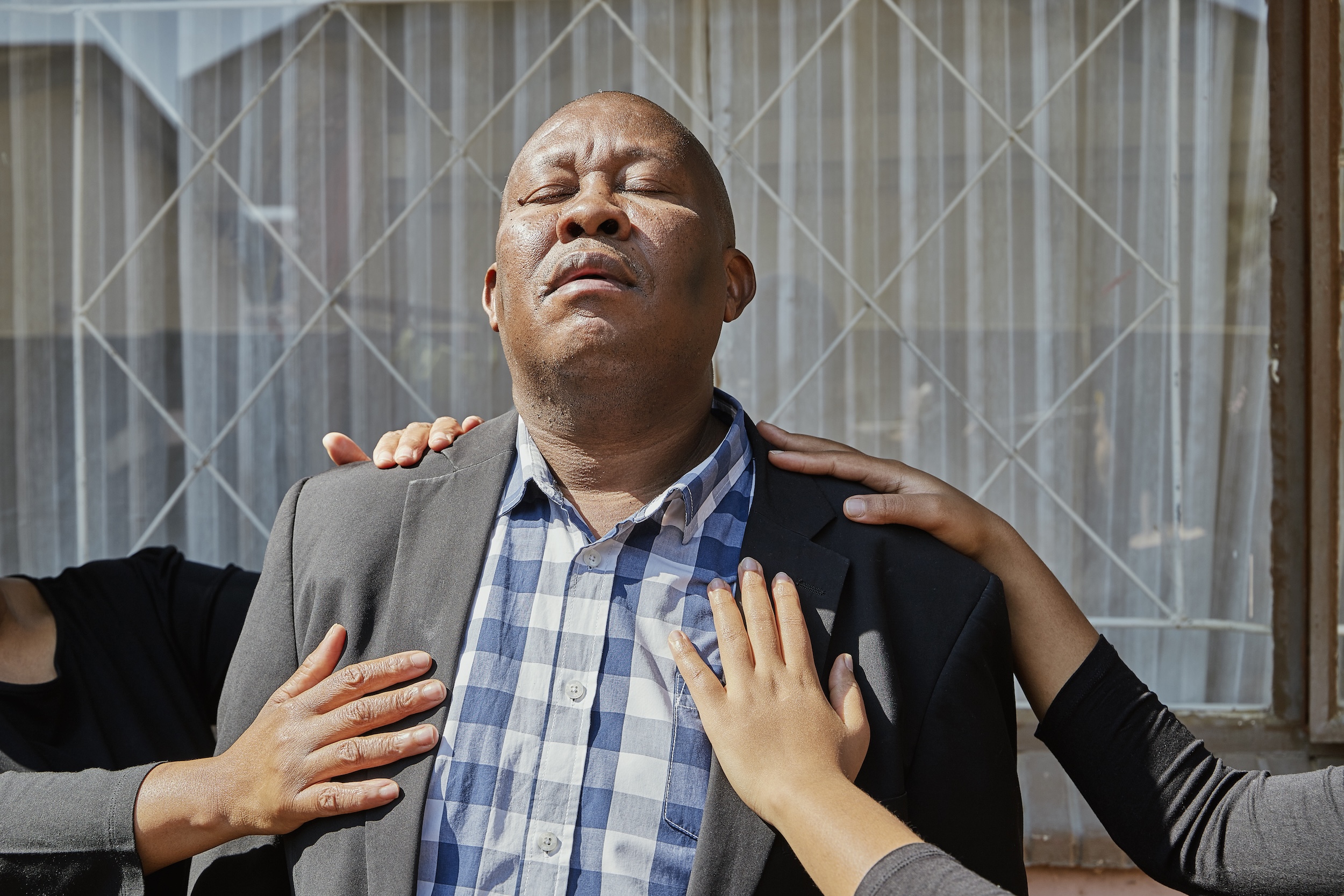
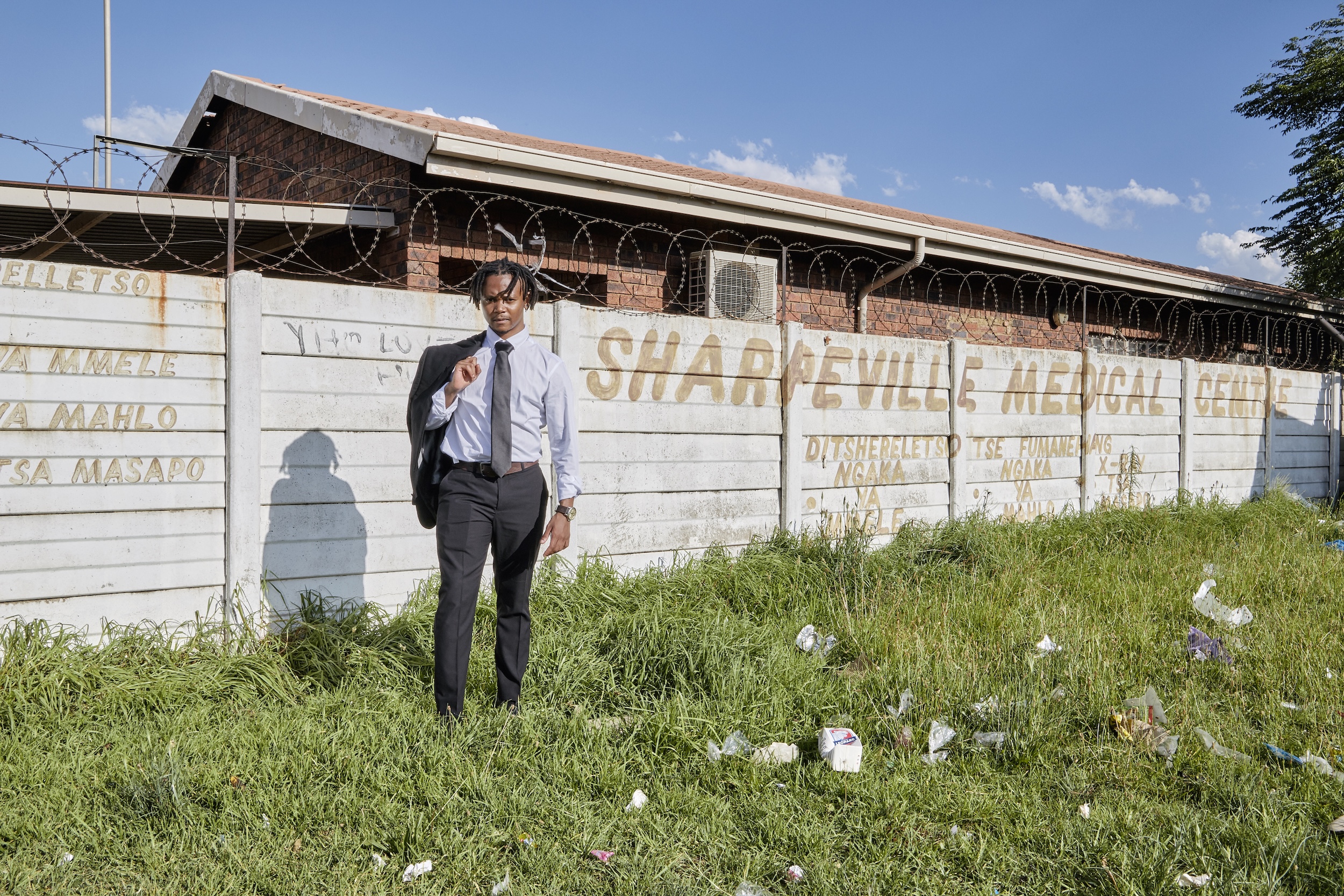
“The way I had learned about apartheid and the struggle was with statistics and these moments…. You didn’t get a sense of what daily life was like for these people”
– Thero Makepe
This family history of diverging paths and roads left untrod, of personal responsibility and unintended consequences, inform Thero Makepe’s series We Didn’t Choose to be Born Here, on show a Lemkus Gallery, Cape Town from 15 February to 12 April, and at Format International Photography Festival, Derby from 13 March to 31 May (and which BJP has selected as its FORMAT25 Award Winner). Growing up in Botswana, Makepe knew little of his family’s radical history, though he was very aware of his South African heritage; his mother in particular felt estranged from her roots, and often went back to South Africa, taking Makepe with her. Friends and relatives often visited, and Makepe’s godparents were also South African.
Eventually Makepe moved to Cape Town to study art in 2016, arriving amid #FeesMustFall protests [the 2015 #RhodesMustFall movement demanded the removal of a statue of arch-coloniser Cecil Rhodes, then expanded to a wider call to decolonise universities, including removing tuition fees]. Initially, he says, he couldn’t understand what was going on. “My upbringing in Botswana was very peaceful,” he explains. “I had never experienced any civil unrest, people fighting collectively for a cause. The national project of Botswana is that we are all one people – there are different subgroups and tribes but there is one flag, one language, one people, and it is one of the most stable economies in Africa. I grew up in a place where, though we are close-knit, it’s still individualistic in the sense of ‘We’ve got everything, we’re in a stable economy, just go to school and get a job’.
“But in South Africa, there is huge imbalance. There’s a lot more poverty, and there is a racial dynamic between people who are descendants of Africans, people who are descendants of Europeans, and people who are descended from Indian slaves. It’s also a huge piece of land, so there are the Zulu, Xhosa, Ndebele, and Swazi, so many cultures and different types of people. Then there is also all the struggle they have been through, and are still going through. When the ANC came into power there was a Freedom Charter, and part of that was [a commitment to] free education for all students. So by then [his student years] people were like, ‘Wait a minute, we never got that’.”
Makepe hung back at first, he says, remaining an observer rather than a participant, “just wanting to be an artist and express myself”. It took him a while “to understand and be part of something bigger than myself”, he says, but eventually counted himself part of this movement. And, though direct photojournalism isn’t his style, We Didn’t Choose to be Born Here was born of this experience. A series of staged and documentary images, it depicts his family in both Botswana and South Africa, with layers of meaning and symbolism showing how the personal relates to the political, and showing the cost that comes with both.
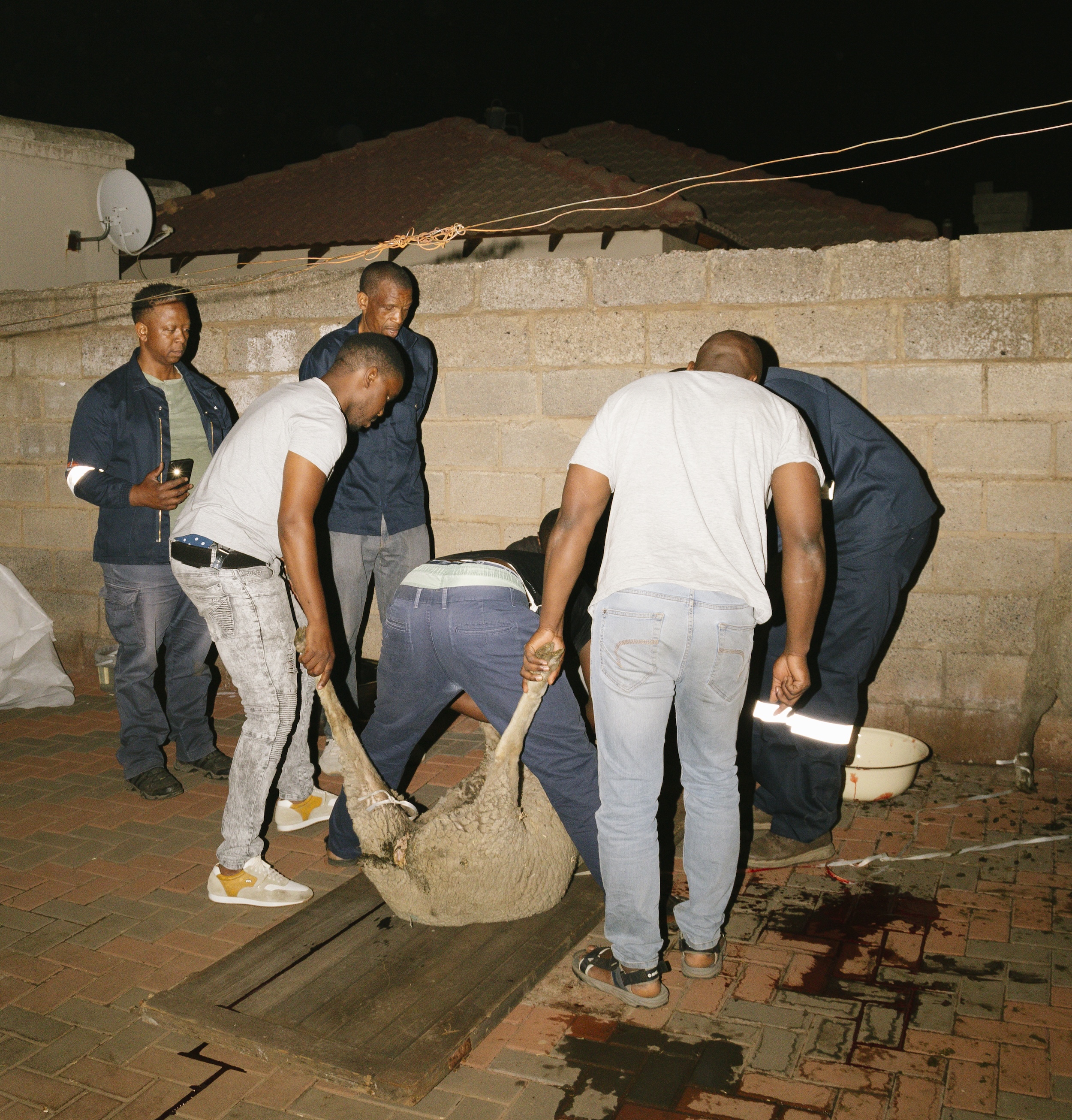
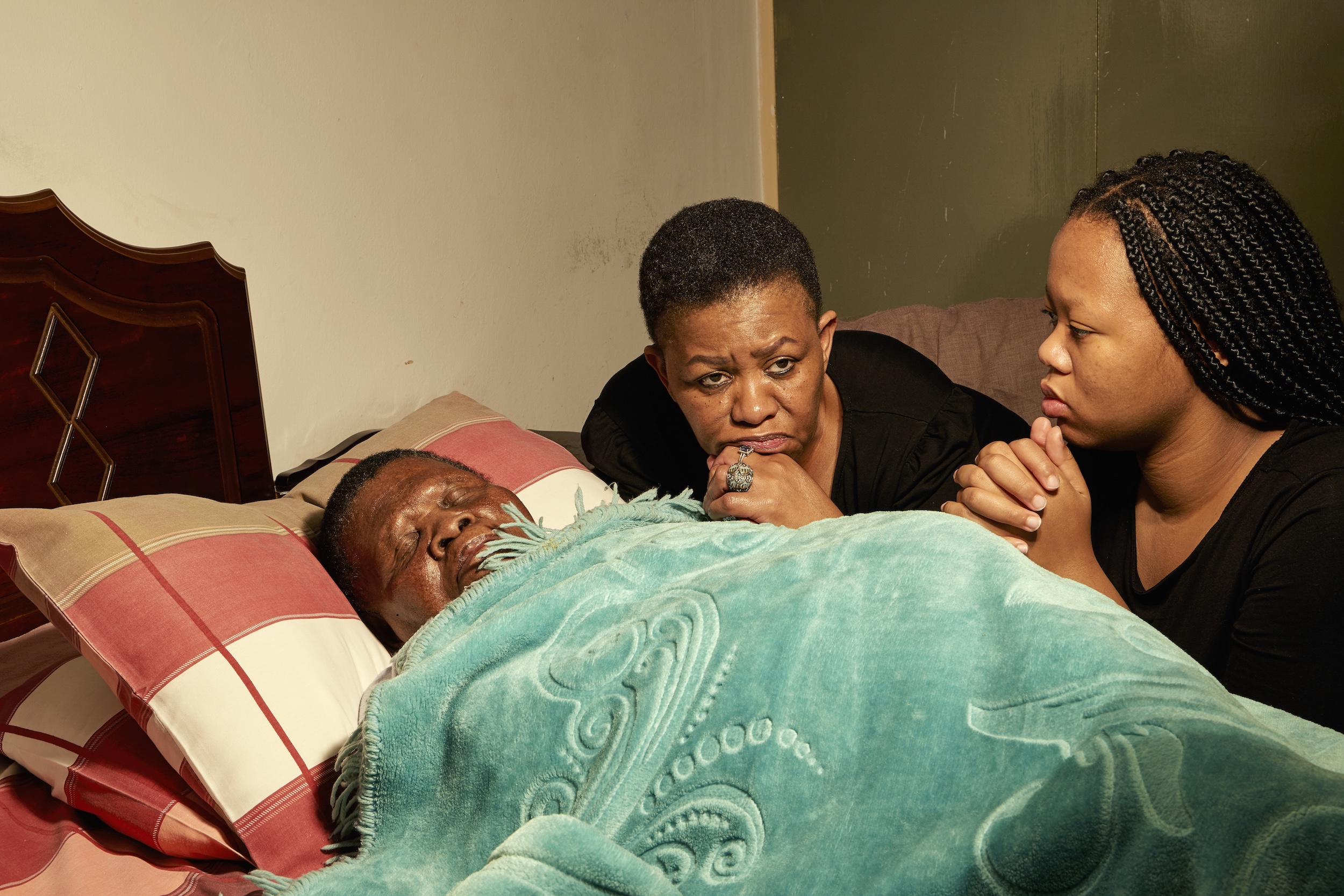
Take his image of a woman dressed in black, for example, standing outside a building and pointing. The woman is Makepe’s mother, and she’s standing outside a church; her posture, which he asked her to adopt, is styled to evoke a gun, or the experience of being pointed out. The image is titled Under Surveillance and it’s an oblique reference to both Christianity and the armed struggle in South Africa, because his Botswana family are devote Anglicans, while Desmond Tutu and the Anglican church played a key role in the anti-apartheid movement.
But there’s also another layer of meaning. In Botswana, his grandfather Mothopeng retrained his links with the struggle back home, and regularly housed exiles travelling from South Africa to Tanzania to undergo military training. “So my mother, as a child, would see these men with young guns and bullets, preparation for a war and revolution,” explains Makepe. And this edge of violence also references a wider sense in Africa, he adds, relating to the fact that Africans “have never received adequate reparations for what happened to us historically, so there’s also this emotion of wanting to enact this violence on these people, abstractly, who did these things to us”.
Another image also touches on violence, showing a group of men slaughtering a sheep. This shot is documentary, taken at a relative’s wedding in a township in South Africa, and on one hand it simply records a traditional custom – the bride’s family provides livestock as a dowry, and some of the animals are killed for the wedding feast. But the image is titled Spilling Blood, and the blood being split is moot. Makepe’s revolutionary great uncle had a son who became a musician, he explains, and one of his hits was a song titled Where Have My Cows Gone? In South Africa, and beyond, this title reads with a double meaning as being about literal loss but also about being dispossessed of one’s livestock and land – one’s wealth – by colonisers.
A third shot shows Makepe’s sister and mother, gathered by his increasingly frail grandmother’s side; summing up something quite literal about the cares heaped on his mother’s shoulders, this image also emphasises the impact of one generation on the next, at a granular, personal level. “That was what was really fascinating for me, when I started to explore the revolutionary side of my family,” says Makepe. “The way I had learned about apartheid and the struggle was with statistics and these moments, you know, at this protest, they burned this, then this person went to jail, and then they were released.
“You didn’t get a sense of what daily life was like for those people, and when I was looking at history it was like everybody was always on the same page. But sometimes there were individuals who felt, ‘I honestly don’t have the capacity to do this right now’. That was something I wanted to get across in my imagery.”
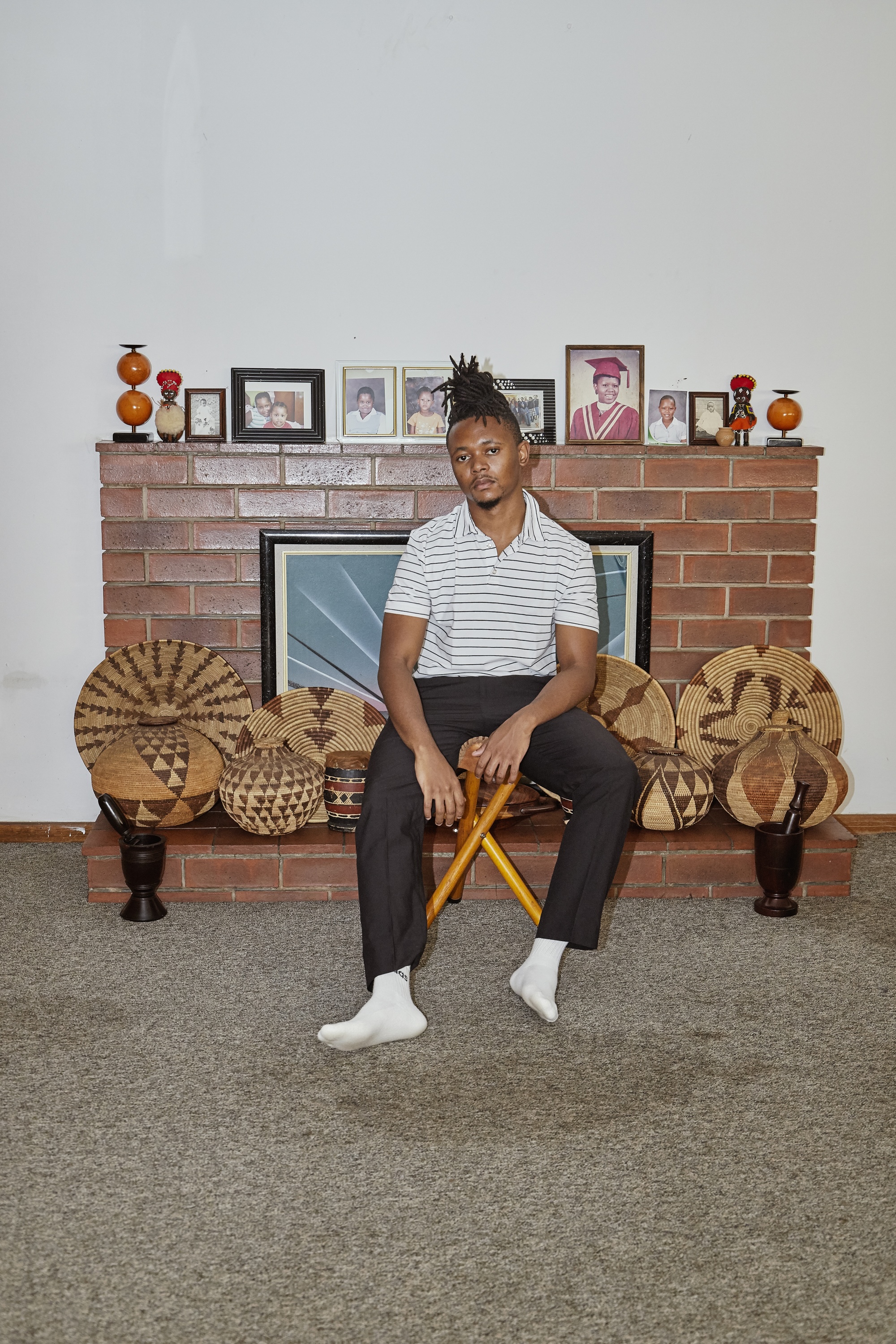
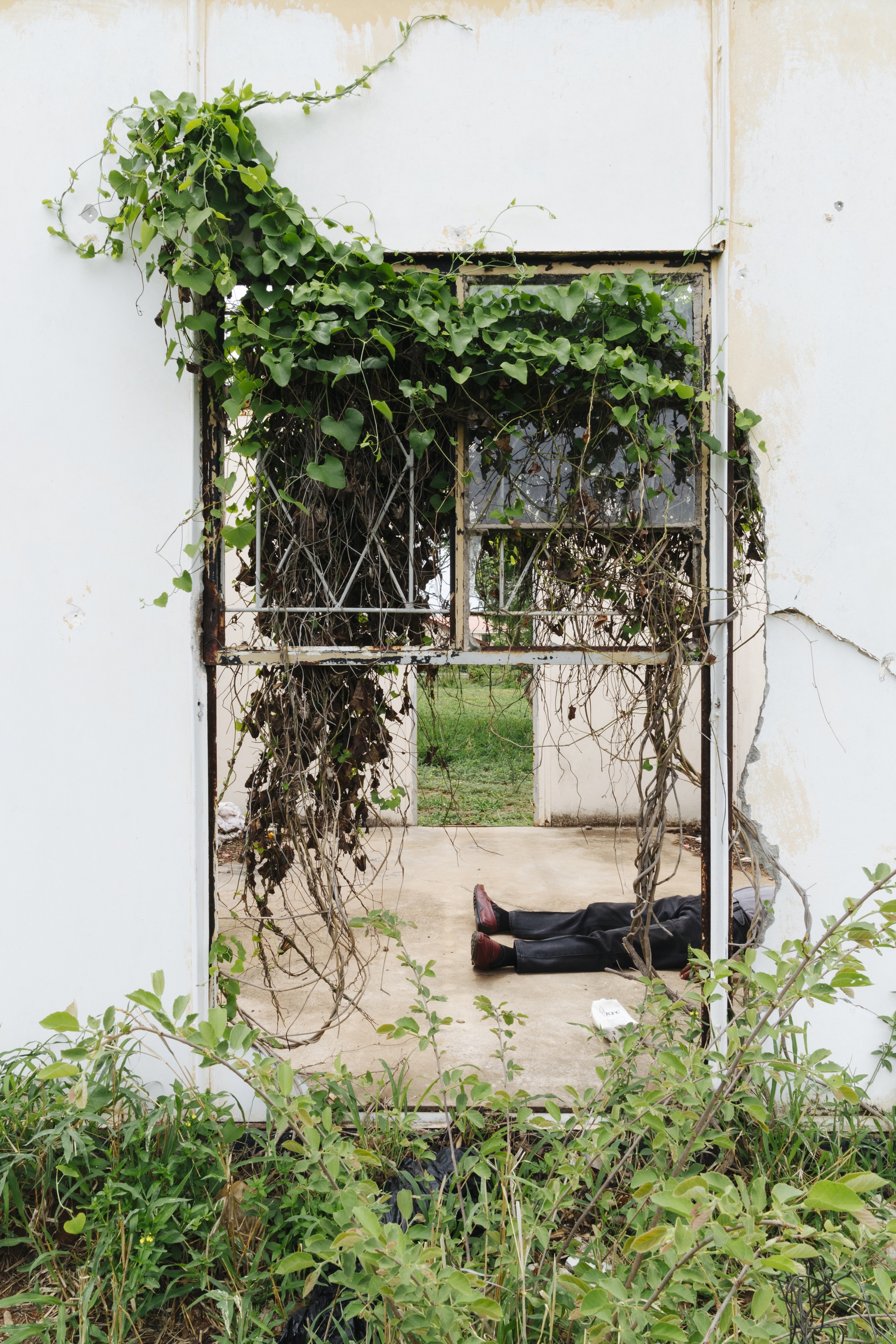
This project was also personal for Makepe on another level, because the revolutionary history of his family was something he had to seek out. Growing up he was sheltered from what was happening back in South Africa, and his family’s efforts as a safe house were hush-hush; it wasn’t until he was an adult that he was able to ask questions and discuss. One of the images in We Didn’t Choose to be Born Here is therefore a self-portrait, depicting the artist in his grandmother’s home. He looks like a hip young man, white socks matching his crisp t-shirt; he’s on the cusp of his adult life, considering his two relatives and the diverging paths their lives took.
Meanwhile the carefully displayed artefacts around speak of much older, longer histories, and the mantlepiece bears family photographs proudly narrating another story of babies and youngsters in graduate gowns. Other images in Makepe’s series take up this theme of display and frames within frames, of what’s shown but equally what’s not. There’s a photograph of a pair of feet just seen in a doorway, for example, further framed by the edge of the shot; partly this image is just playing with composition, says Makepe, who started out interested in drawing, and painting, and comics, but it also has a very political impetus, relating to Botswana’s less-told history.
“There was a raid that happened in 1985, where the South African Defence Force came into Botswana looking for exiles, and people who were housing exiles,” Makepe explains. “My family survived that attack, but there were 15 casualties. This shot doesn’t show the exact place where it happened, but these houses look very similar, so when I found them, I knew I wanted to photograph them. I wanted to capture what looks like the aftermath of people being murdered by a state, to set up a tableau that depicts the past.”
Makepe’s uncle was happy to pose for the image and, as We Didn’t Choose to be Born Here makes clear, his family are active supporters, often literally helping him make his work. His new project, It’s not going to get better, which shows dissatisfaction in the apparently placid Botswana, also includes family members; and it also combines staged and documentary shots. “I usually photograph people when we have an established relationship and I can take my time,” Makepe explains. “But if not, I’m not someone who just takes a photograph without permission. I’ll approach and say ‘You were doing this just now, could you please do it again? Can I take a photograph? Here’s my business card, let’s exchange’.
“You know, I don’t exist in a metropolis or cosmopolitan area where every day you’re encountering someone who’s new,” he chuckles. “I know everyone around. Botswana is a small country – the population is only 2.5 million, and the capital city is only 250,000 people. So if I take a picture of somebody, there’s a high chance I’ll see them again, at the barber shop, at the shopping mall.”
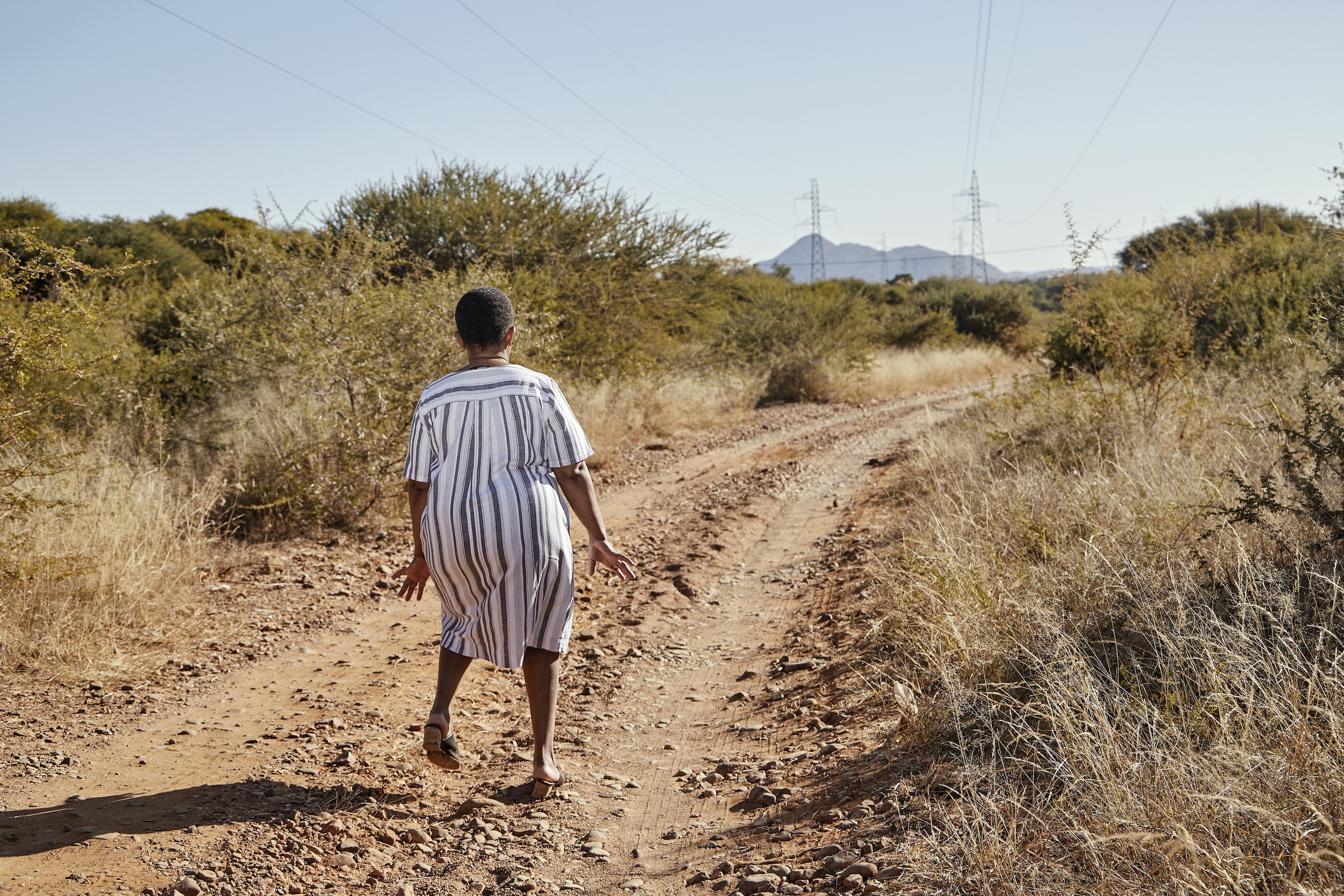
We Didn’t Choose to be Born Here is on show at Lemkus Gallery, Cape Town from 15 February to 12 April, and at Format International Photography Festival, Derby from 13 March to 31 May, and BJP has selected the series as its FORMAT25 Award Winner. The work will also travel to the Deutsche Börse Photography Foundation, Frankfurt from 28 March – 17 August with the Foam Talent group show. theromakepe.com

